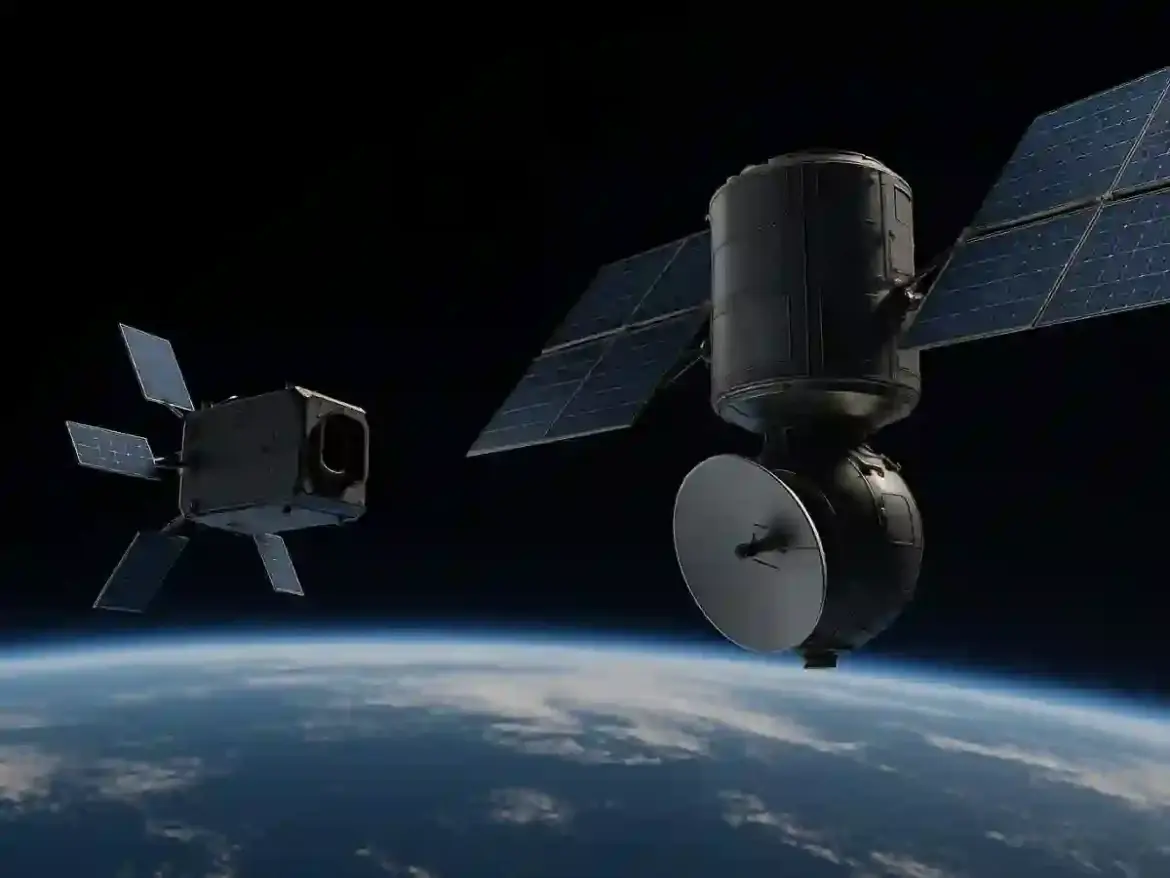In a move highlighting the growing military activity beyond Earth, German Defense Minister Boris Pistorius revealed that two Russian “inspector” satellites are currently keeping a close eye on German military assets in orbit.
These spacecraft, likely part of Russia’s Luch and Olymp series, are maneuvering around geostationary orbit to inspect or probe satellites operated by the Bundeswehr.
Russian Satellites Targeting German and NATO Communications
The main objects of interest appear to be high-capacity commercial communication satellites that Germany leases, including Intelsat platforms that transmit sensitive data for both Germany and NATO operations.
German military satellites COMSATBw 1 and COMSATBw 2, stationed in geostationary orbit, are also under surveillance.
The Luch and Olymp satellites are engineered for precision maneuvers, close approaches, and radio-frequency intelligence gathering.
This makes it possible for them to map satellite layouts, intercept communications, or even disrupt signals, while shadowing their targets for days or even weeks.
Germany’s Space Awareness and Defensive Capabilities
Germany isn’t flying blind in this scenario. Using its own monitoring assets and allied networks, Berlin can detect and track such satellite maneuvers.
Tools include phased-array radar systems, high-precision antenna radars, and orbital determination data shared among partner nations.
These allow Germany to calculate approach trajectories, measure distances between satellites, and assess how long foreign satellites linger near German or leased communication platforms.
Risks to Military Command and Satellite Security
The Bundeswehr also relies on a trio of SARah radar satellites in sun-synchronous orbit to capture high-resolution Earth imagery.
These satellites transmit their data via the COMSATBw network, which means any close approach by foreign satellites could compromise command-and-control capabilities and disrupt allied communications.
Germany has confirmed it is monitoring the situation closely and is prepared to take defensive or deterrent actions if necessary, signaling a clear message that its space assets are under active protection.
